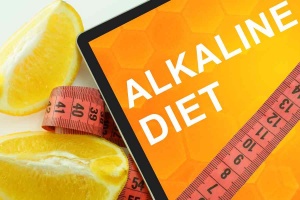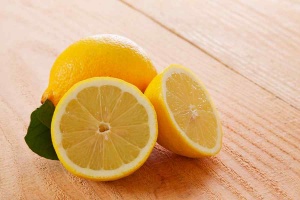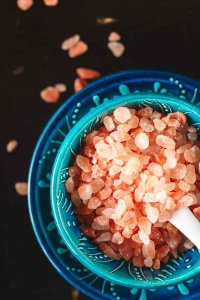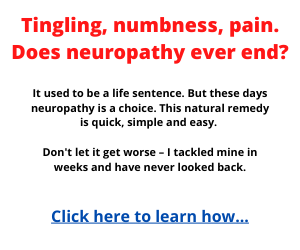The overall goal of an alkaline diet is to eat a combination of foods that keep your body fluids in a slightly alkaline state.
For optimal health, other than your stomach acid, your body fluids should be maintained in that state. This means a pH of slightly above 7.0. A range of 7.1 to 7.4 is perfect.
If your body fluids have a pH lower than 7.0, they are in an acidic state and this is not healthy.
Your body fluids include your blood, urine, intracellular fluid (fluid inside your cells), interstitial fluid (fluids around your organs and outside your cells), and the fluid in your lymphatic system.
Our body regulates the blood pH to stay within the range of 7.35 to 7.45 which is slightly alkaline.
Simply put, an alkaline diet is eating foods that keep your body fluids in a slightly alkaline state range most or all of the time. This doesn't mean that every food you eat should be able to produce a pH between 7.1 and 7.4 on its own.
Why follow an alkaline diet plan?

However, over time, both will harm you significantly. If your body is acidic all the time or most of the time, it puts you at a much higher risk for serious diseases and chronic health issues that will lower your quality of life and decrease your lifespan.
People with high acidity are more likely to develop type 2 diabetes, cardiovascular disease, Alzheimer's disease, and multiple forms of cancer.
If you already have a higher propensity to get these diseases due to your genetics, an acidic diet will exacerbate this already elevated risk.
Moreover, people with high acidity tend to age faster, have less energy, and experience more stiffness in their joints.
Remember this tricky little fact
The best foods to eat on an alkaline diet have NOTHING to do with the pH of the foods before you eat them!
What actually matters is the effect the food has on your body as you digest and metabolize it.
Here is the important question you should always ask: “Does this food have an alkalizing effect on my body or an acidifying effect on my body?”
You should also ask, “Is this food strongly or weakly alkalizing?” or “Is this food strongly or weakly acidifying?”
This tricky little fact is very important to get perfectly clear in your mind because there are many articles and charts posted on the internet that confuse this issue.
These misleading articles and charts are put out by people who don't truly understand the concept of an alkaline diet. They actually misconstrue an alkaline diet to mean you eat foods that have an alkaline pH and avoid foods that have an acidic pH.
However, this is missing the point entirely! What you really need to concentrate on is what effect the food will have on the pH of your body fluids!

A lemon has a pH of around 2.3. This is a very acidic pH. However, the lemon is also one of the most alkalizing foods you can eat!
As a lemon is digested in your gut, the way it is metabolized and absorbed will make your body fluids more alkaline.
One easy way to make your diet much more alkaline
Salt is ubiquitous. Table salt is the most basic spice we use and we put it almost in everything! Virtually all processed foods contain ample quantities of table salt too.
Unfortunately, table salt is highly refined (industrialized), and therefore, extremely acid producing in the body!
You may be reading the information above and thinking, “Oh no… I don't want to cut back on my salt! I love salt! I crave salt! Salt makes things taste better!”
Well, here's some good news… you do NOT have to cut back on salt to make your diet much more alkaline!
Simply switch to unrefined salt! Unrefined salt, unlike table salt, does not make your body acidic! Chemically, table salt and unrefined salt are very different.

Unrefined salts also include Himalayan salt (the pink salt) and Real Salt which is excavated out of an ancient sea bed in Utah and sold in its natural state!
Here's some more good news… unrefined salt has a much better flavor than table salt!
Here's some more good news… unrefined salt has a much better flavor than table salt!
Of course, you'll also need to cut way back on your processed foods because they almost always contain table salt.
You may also need to cut back on take-out foods and eating out in restaurants. However, you can usually find places that cook with unrefined salt if you really look for them!
One final note
Be sure you can trust your source of information before you use a chart to determine the best foods to eat on an alkaline diet and what foods to avoid. There is a lot of misinformation out there!








